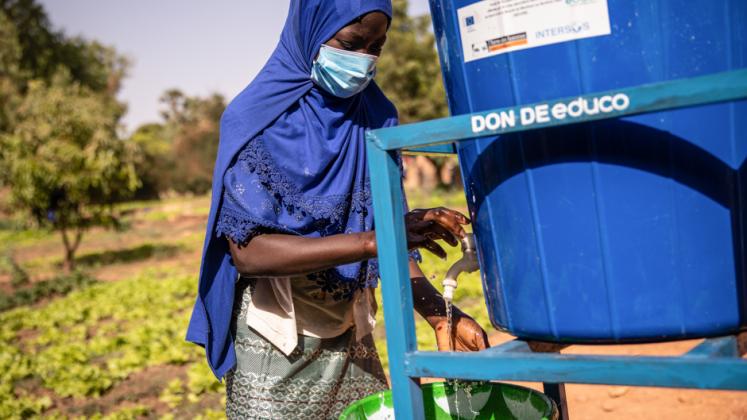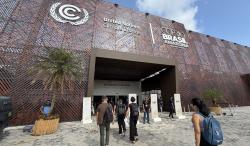Global progress has been staggeringly inadequate on Sustainable Development Goal 6, “clean water and sanitation for all.”
According to the latest SDGs progress assessment, 2 billion people still lack safely managed drinking water, 3.6 billion lack sanitation services, and 3 billion people lack basic hygiene services.
Waterborne diseases continue to take a heavy toll on the global community, with hotspots in developing countries most acutely affected.
To address this crisis, the United Nations launched the SDG 6 Global Acceleration Framework in 2020 to fast-track progress. The framework is a roadmap for aligning national policies and financial resources and scaling up action at all levels, but it has two fundamental flaws that need to be addressed.
Impacts of the COVID-19 pandemic
First, the Framework largely overlooks the impacts of the COVID-19 pandemic on the means by which safe drinking water, sanitation, and hygiene services will be provided where needed.
The pandemic badly affected and continues to affect the financial, political, and institutional structures and the social fabric of countries. Debt and inflation in many countries are rising while foreign investment declined by 35 per cent from 2019 to 2021.
The ability to make critical capital improvements has also been drastically affected during the pandemic, causing a delay in completing planned water and sanitation infrastructure and further enfeebling already underfunded services in developing countries.
Global and national financial, political, and institutional structures need to be reshaped, and the social fabric repaired, as part of a truly transformative sustainability agenda.
Undervaluing SDGs interlinkages
Second, the SDG 6 Global Acceleration Framework undervalues the potential of strengthening interlinkages across SDGs. While it recognizes the importance of SDG 6 interlinkages, it does not call for systematic change in traditional forms of decision-making in the water and sanitation sector.
The risks of addressing SDGs individually without considering their interlinkages was the subject of warnings early in this global process. Moreover, SDG interlinkages are context-specific and depend on several factors, such as geography, governance, or socio-economic conditions.
The current economic slowdown could push another 263 million people into extreme poverty in 2022 — a number roughly equal to the combined populations of Germany, France, the UK, and Spain — further compounding challenges across critical dimensions of sustainable development, such as health, education, gender, and water and sanitation.
Policy coherence is indispensable to sustainable development. A post-pandemic framework for sustainability requires policies that are mutually supportive across multiple sectors. Countries must move on from merely identifying interlinkages between SDGs to strengthening and acting on them.
Two actions to bridge the gaps
The impacts of the COVID-19 pandemic clearly necessitate better coordinated multi-sectoral policies. Next year, UN Member States meet at the UN 2023 Water Conference for the midterm review of the Water Action Decade 2018-2028, an effort to galvanize social, economic, and environmental action.
National decision-makers and development actors need to act on the following recommendations:
1. Prioritizing critical SDG 6 targets in the post-pandemic context: This means reshaping and strengthening today’s inadequate means of implementation and coming to the UN 2023 Water Conference with bold pledges, concentrating resources on bringing drinking water, sanitation, and hygiene services to the most vulnerable people — women and girls, migrants, the urban poor, schools, and hospitals, by 2030.
2. Harnessing the potential of SDGs interlinkages in policies and implementation plans at all levels: Accelerating the achievement of SDG 6 supports many other SDGs, particularly those related to health, education, food, gender equality, energy, and climate change. In the context of scarce financial resources and insufficient capacity, countries can prioritize strongly interlinked SDGs to yield achievements across multiple sectors.
We have seen and heard continuous global commitments to support the necessary conditions for sustainable development. In the post-pandemic context, progress in the water and sanitation sector has a new multifaceted purpose offering a wealth of benefits. It is time to realize them.
This article is republished with the permission of Inter Press Service News. Read the original article on the Inter Press Service News website.
Suggested citation: Qadir Manzoor, Guillaume Baggio. "Accelerating Post-pandemic SDG 6 Achievements on Water and Sanitation," United Nations University, UNU Centre, UNU-INWEH, 2022-11-01, https://unu.edu/article/accelerating-post-pandemic-sdg-6-achievements-water-and-sanitation.



